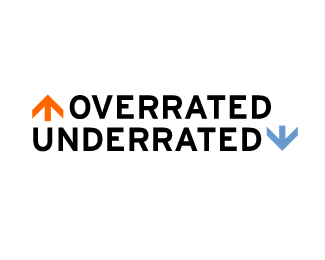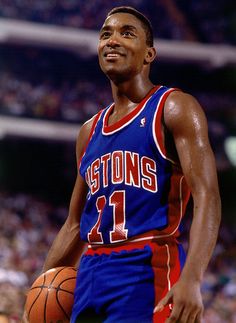My current favorite sports talk show is the Russillo and Kanell Show that airs nationally on ESPN radio. On the show, the hosts occasionally do a 'rated' segment where they categorize sports teams, players, and other aspects of sports and pop culture into one of three buckets. 'Overrated' for things they think are generally praised or valued more than they should be. 'Underrated' for the opposite - things that do not get enough attention or accolades. And finally 'Properly' rated, for the things that receive about the correct level of praise or derision.
It is a fun segment, complete with sound effects, and in the spirit of having lots of 'real' work to do in this first week of 2017, I am going to steal borrow the idea for this site. So here goes, the first in what may be a series if I remember to do this again, of 'Over, Under, and Properly Rated' (SFB edition). Expect a mix of HR, workplace, Tech, sports, pop culture, and whatever else comes to mind.
Overrated
1. 2017 Predictions - Yes, I am a little biased since Trish McFarlane and I just did an HR Happy Hour Show titled 'There are no new HR predictions', but nonetheless, 99.95% of the 'predictions' pieces you see about HR or work or technology are 87.95% worthless, and more or less a waste of your time. Stop with the predictions and get on with the getting stuff done.
2. Apple - leaving Apple on the overrated list again. Why? I just saw a Kickstarter project for a device to essentially replace all the MacBook ports that Apple decided you didn't need has been a runaway smash. What is happening with Amazon and Alexa reminds us (again), that the hardware is less important than the software and the platform.
3. Work/Life Integration - As yesterday's post about the new 'No email after 6PM' regulations in France suggest, I think the notion that most people want 'Integration' or 'Fit' between work and not-work may be finally unraveling, at least some. it could be that many, if not most people, don't want to bring their work home, or on vacation, or on Thanksgiving. It could be we want to work hard, (when we are working), and forget about work when we are not working. Just because a few pundits try and tell you that 'Balance' is the wrong term and concept doesn't mean you have to believe it.
4. Company Culture - Important, sure. But not more important than Talent or Strategy. (A repeat from last time as well, I am going to keep beating this drum until, well, for a while longer anyway).
5. The New York Knicks - Just lost their 6th in a row. Moving them from 'Under' to 'Over' rated. Another wasted season seems more and more possible. Time to trade 'Melo.
Underrated
1. Amazon - Fun Fact! Amazon was my #2 underrated the first time I did this post last summer. Why are they on here again, and now at the top spot? Because all the interesting news I heard this week from the big CES show in Vegas has been about Amazon and their Alexa operating system. They are into everything - enterprise cloud services, content, drones, spaceships, and now they are set to dominate AI and conversational interfaces. When was the last time you heard anyone talk about Apple's Siri?
2. Electronic signatures - Been processing a ton of contracts, agreements, etc. lately and the lack of adoption of electronic signatures has been a major pain in the neck. I have had to print, sign, scan, save, then email I am not sure how many docs in the last month. So tedious. Let's all please move E-sigs up on the list of things to do in 2017.
3. A basketball hoop in the driveway/backyard - Had the chance to play a little backyard hoops over the holidays. Man, I miss having a hoop in the backyard. Goal for 2017 is to get one. And a yard.
4. Email consolidation - In 2017, I have gone from 3 main 'work' email addresses and calendars down to 2. (I know I should only have one, but cut me a break). I already, three days in, have noticed a huge difference. AND, I cleared out my voice mail (finally). But please, don't leave me a voice mail.
5. The Rose Parade - It's is still fun. It is still a great tradition. It is still what helps you get over your New Year's Eve hangover the next morning. I am there in person next year.
Properly Rated
1. Tech M&A - Yes, it is that time of year when companies start acquiring other companies, doing mergers, or making 'acqui-hires'. These events are almost always met with breathless and excited coverage and commentary from industry pundits and observers. But the thing is, M&A, and Tech M&A in particular, is about a 50/50 proposition, (at best). Maybe slow your roll on how wonderful the next big M&A deal is going to be before the new company business cards are even printed.
2. Tesla - Probably not as influential and important (yet) as the insane amount of coverage they get warrants. They delivered 76,000 cars in 2016. That is 76,000 out of a market of over 17 million vehicles. Keep that in perspective.
3. Ad blocking software - Is it just me, or are more and more 'free' websites failing to load if you have Ad Block software enabled? Ad blocking is now only marginally effective, and thus, 'properly' rated.
4. The 'Process' - The mad scientist plan of former 76ers GM Sam Hinkie to rebuild the team by essentially losing almost every game for three seasons has swung from over, to under, and now has settled I think inot properly rated. But Joel Embiiid himself is probably underrated.
5. Snow at Christmas - Yes, it's pretty. Yes, it makes it 'feel' like Christmas. But by December 26 it is just, for the most part, a nuisance. I am angling for Christmas on a beach somewhere next year.
What do you think? Do I have it right?
Is this post itself over, under, or properly rated?

 Steve
Steve


